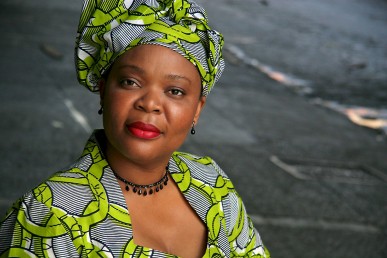UIC School of Public Health celebrates 40 years
The University of Illinois at Chicago School of Public Health is celebrating 40 years of teaching, research and service as the only accredited school of public health in Illinois.

Leymah Gbowee, founder and president of the Gbowee Peace Foundation Africa and 2011 Nobel Peace Laureate
To mark the anniversary, a gala will be held Saturday, April 13 at the Field Museum, 1400 S. Lake Shore Drive, from 6 to 11 p.m. The keynote speaker is 2011 Nobel Peace Laureate Leymah Gbowee, a Liberian peace activist, social worker and women’s rights advocate.
Gbowee is best known for leading Christian and Muslim women in a nonviolent movement that helped to end Liberia’s 14-year civil war in 2003.
“We clearly recognize that public health cannot be achieved in an environment of conflict and violence, nor can it thrive without the full participation of women and a recognition of their equal status in a society,” said Paul Brandt-Rauf, dean of the UIC School of Public Health, recognizing Gbowee’s successful efforts to lead women and assert their rightful place in a peaceful and healthy society.
The UIC School of Public Health opened in 1972 with 22 faculty, 18 students and one degree program. Today, the school has more than 600 students, 4,000 alumni, 100 faculty, and it offers three master’s degrees, two doctoral degrees, 18 concentrations, eight certificate programs, and a new undergraduate program.
During the past four decades, Brandt-Rauf said, the school’s faculty and students have been involved in improving the quality of the air we breathe, radically reducing violence around the world, slowing the spread of HIV/AIDS, and contributing to the health of an aging population.
“As the school celebrates its 40th year, I am excited about the future,” Brandt-Rauf said.
“I believe the school needs to continue to expand partnerships with communities, government agencies, employers and other stakeholders so that our practice and service translate into real solutions that will make the world a better place.”
Purchase tickets to the gala online.
UIC ranks among the nation’s leading research universities and is Chicago’s largest university with 27,500 students, 12,000 faculty and staff, 15 colleges and the state’s major public medical center. A hallmark of the campus is the Great Cities Commitment, through which UIC faculty, students and staff engage with community, corporate, foundation and government partners in hundreds of programs to improve the quality of life in metropolitan areas around the world.
